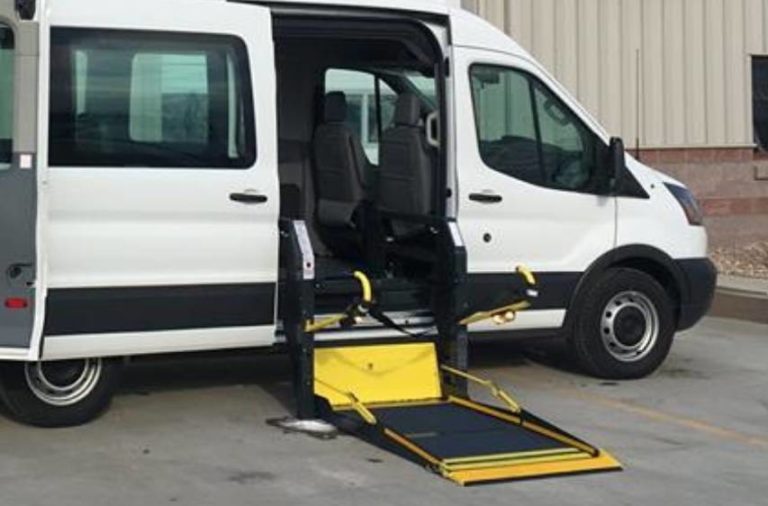Workers Compensation Insurance Requirements by state

Employers must make sure that people are safe when they work. You need to know workers compensation insurance requirements by state. When someone gets hurt, they will get workers comp benefits. Most states say that employers need to give workers comp benefits unless the person is not covered by a contract or collective bargaining agreement.
Federal workers are not covered by workers’ comp most of the time because they have a law that protects them if they get hurt on the job. Some states require employers to provide workers’ comp coverage to people working in certain jobs, like school crossing guards.
Workers’ compensation insurance requirements by state are different depending on if you are a private or public worker.
Who needs workers compensation insurance in Arizona
In Arizona, employers must provide workers compensation insurance for their employees. Employers have to do this for all employees who work in Arizona and for some independent contractors. Other types of work, such as volunteers or students on a scholarship, do not need insurance.
Anyone who is engaged in the business of their employer and works on the employer’s property gets paid. Workers Comp Law defines “employee” as anyone who is working for them, though they may not be getting a salary or wage.
A work study student is a person who does work for a school district. They do the work under two conditions: 1) The person is organized and directed by either school district personnel or an independent contractor that has contracted with the school district. 2) Also, the workers compensation insurance premiums are paid by the school district. If workers comp benefits are provided to the worker, they will be limited to on-the-job injuries or illnesses.
Employers who have their employees work off-site might have to provide them with workers’ compensation insurance. It depends on the kind of work they do.
Workers compensation insurance requirements
Employers who don’t have any employees under the workers’ compensation law must buy a non-insured workers license from the Arizona Department of Insurance. Non-insured workers don’t have a right to any benefits for injuries or illnesses that happen on the job. But if they get hurt because of another employer’s actions, they will be entitled to payments from an uninsured employers fund. Employers are different than people who work for workers’ compensation insurance purposes. State and federal government employees might still get workers’ compensation insurance if they meet the definition of an “employee.”
Many states do not cover independent contractors. This means that if you own your own business, you will not be able to get workers’ compensation coverage. But if you are an independent contractor, then you can buy coverage from any company that is willing to write it for you. However, Arizona does not require independent contractors to provide workers’ compensation insurance for themselves or anyone else. Workers who are considered employees under Arizona law may still have coverage under a policy written by someone else, including workers who are covered by workers’ compensation insurance.
When a government does not give workers’ compensation to its own employees, it can’t give any to other people. When you work for a government and you do not get money, then you need to buy your own policy. This is true even if you are a volunteer.
The law that makes sure that people at work are covered by workers’ compensation does not define “employee.”
Is Workers Compensation Insurance Required?
AA work study student is someone who helps the school district. They need to be working in the school or living close by. You don’t need work study students if you live in your house or are self-employed. Workers’ compensation is only required when the worker is paid by the company.
Workers should check with their state department of labor to find out the laws. Workers have to be covered by workers’ comp. Some people are not covered, like people who work in their own homes or on farms. Because this varies by state, it’s best to check your state’s requirements. Some states even require volunteers working with governmental entities to have workers’ comp protection.
Who requires workers compensation insurance in California
Californians can buy workers’ compensation insurance for themselves or their business through an association. When they are the owner of a business that is incorporated, owns more than 40% of an unincorporated company, or is a partner in a partnership, they can buy workers’ compensation on their own. But if they do not meet these conditions, they might need to buy workers’ comp insurance for their employees through an individual policy.
When you operate without workers’ comp, you must tell the state. Also, if you have 10% to 49% of your employees covered, then you need to tell them on your third anniversary date as well as when you register. The exemption only applies to providing benefits, not paying premiums. Even employers that are exempt from providing workers’ compensation, they still have to pay the workers’ comp premiums.
When you don’t get the benefits you need from your employer, talk to a lawyer about your workers’ compensation.
Some programs that provide benefits or services related to work are not required to also provide workers’ compensation coverage. This includes the U.S. government, organizations that are organized for educational purposes, religious purposes, scientific purposes, and charitable purposes; labor associations; and agricultural labor organizations. The exemption does not apply to public sector employees in a state who have their own fund instead of getting workers’ compensation through the federal system.
Is Workers Compensation Insurance Mandatory in California
Only people who are injured on the job or contracted an occupational disease will receive workers’ compensation benefits. People who get hurt while not working will not receive these benefits.
Workers’ compensation is only for a limited time. It does not cover any injuries that are permanent. Workers can use workers’ compensation for temporary total disability benefits, but only if the injury is temporary and they get better before two years. When they get better, workers’ comp ends and they don’t receive anything else.
School districts organize and direct the workers comp. They pay for it. Workers can get help with on-the-job injuries or illnesses, but not anything else.
When you are an employer, you need to provide workers’ compensation insurance when workers do work for you on your premises. This is not the case if the employee works off of your property or if they work for more than one employer in a day.
When a worker is employed by a company who is out of the state, they do not need to have workers’ compensation insurance. They also do not need to have it if they work on their way to or from their job or when they are on active duty with the military.
When is Work Comp Insurance Required?
Workers who have not qualified for workers’ comp can still get benefits if they have a different policy. These plans are often the same as those offered by other companies. But they may not be as good or offer as much coverage. They do not cover injuries that happen when you are off duty either.
Workers’ comp is when the government helps people who get hurt on the job. Employers pay a percentage of what you make to help you if something bad happens.
The workers compensation industry has been reactive to preventing workplace injuries. It is better for the employer when someone gets hurt at work because the company has workers comp insurance. Also, the person who gets hurt still gets paid because they had time to get injured before it got too bad.
Workers’ comp is insurance that makes sure that if someone gets hurt, they get money. When their boss has workers and there is safety at the place where they got hurt or got sick, the boss pays less for it.
How much is workers compensation insurance?
In California, workers’ compensation insurance premiums are based on the number of people who work for a company. The cost is calculated by putting together the average salary for each position and multiplying it by 0.36%. Then the total from all positions is multiplied by 1.44 to find out how much it will be per employee, which must be reported to the carrier before 10th day of each month along with payroll information for all workers who worked during that month. This information will help insurance companies calculate the cost of your workers’ compensation. When you have a job in California, you need this kind of insurance. The cost goes up in some years, but it also goes down. Make sure to read this carefully so that the rate is fair for you.
Each worker’s compensation insurance company has their own way of setting the workers’ comp rate. It is important to compare quotes from different companies so you can get the best rates. Also, the workers’ comp premium in July 2013 was obtained by looking at the workers’ comp rates from people in a survey. This is not for you to use, but is only for comparison. The chart below is showing the rates for workers’ compensation insurance coverage.
Do I need workers compensation if I don’t have employees?
In California, workers’ comp premiums depend on the class of worker and the amount of money that has been spent on workers who have been injured. The more injuries there are, the higher your premium will be. There is a review of company’s business entity or corporate structure if there is a change. The first policy period for this workers’ comp rate table was 10/1/2012 through 9/30/2013.
Workers’ compensation insurance rates were submitted by workers’ compensation insurance companies. They show the prices for each company who is providing insurance from November 1, 2012 to October 31, 2013. Workers’ compensation premiums are based on classifications and the associated loss experience of those classifications. This is about workers’ compensation. It is important for workers. They use this to decide if they should pay you money or not. You may be hurt and need it so your boss pays for your doctor bills and other costs. This covers 2011-2013 as required by California laws SB863 & AB435, which means that it only applies from November 1st, 2011 to October 31st, 2013.
California workers’ comp premiums work like this. They are based on the classifications and the associated loss experience of those classifications, including payrolls, industrial classification, number of past on-the-job injuries and Days Away From Work (DAFW). If you change your business, you can ask for a new classification. The premium for workers’ compensation insurance in California is $8 per $100 and was effective from October 1, 2011 to September 30, 2012.
Check out our other insurance

